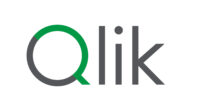|
|
 |
This Presentation date is February 23, 2024 at 10:00-11:30.
Presenters: Mary Kern, Miranda Foster, Nick Magnuson, Ryan Welsh, Sean Stauth
Qlik presented at AI Field Day 4, highlighting their AI strategy and capabilities. The presentation covered Qlik’s approach to helping organizations mitigate AI risks, embrace complexity, and scale impact. It showcased Qlik’s AI-enhanced solutions, self-service AI offerings, and real-world use cases in sales, operations, HR, and IT.
Wherever There’s Data, There’s Possibility with Qlik
Watch on YouTube
Watch on Vimeo
Miranda Foster, VP of Corporate Communications, kicks off Qlik’s “Wherever There’s Data, There’s Possibility” session at AI Field Day with an overview of objectives, speakers, and presentations.
Foster welcomes attendees and outlines the agenda for the session. She highlights that AI is a critical component of Qlik’s company strategy, portfolio growth, and market approach. She mentions a recent acquisition of Kyndi, a company related to their AI portfolio.
Miranda then introduces the speakers for the session and also announces their user conference, Click Connect, scheduled to take place in Orlando from June 3rd to 5th.
Personnel: Miranda Foster
Qlik AI Strategy Overview
Watch on YouTube
Watch on Vimeo
A recognized leader in analytics and data integration and quality, Qlik is trusted by 40,000 customers and 500 non- profits worldwide to help them use data, analytics and AI to create value by solving theirs and the world’s greatest challenges. In this presentation, VP of Analytics and AI Portfolio Marketing, Mary Kern, introduces Qlik’s strategy for helping organizations mitigate the risk, embrace the complexity, and scale the impact of AI.
Kern highlights Qlik’s history of innovation in visual analytics and its continued efforts in analytics, data integration, data quality, AI, and automation. She notes that Qlik supports over 40,000 organizations and 500 NGOs worldwide in leveraging data and AI to solve significant challenges. Kern discusses how Qlik took a step back to understand what organizations want from generative AI, finding that companies seek a partner to help them safely embrace AI, manage its complexity, and scale its positive impact. Qlik aids customers in building a trusted foundation for AI through broad data connectivity, intelligent data pipelines, data transformation engines, robust data catalogs, and lineage for traceability and trust.
Qlik offers turnkey AI solutions, enabling organizations to scale data-driven decisions across their teams through automated insights, natural language experiences, proactive alerts, and notifications. They also provide self-service AI solutions, including AutoML, data science, and generative AI offerings, under the umbrella of Qlik Stage. This set of solutions is designed to bring AI strategies to life while minimizing risk, handling complexity, and maximizing AI’s impact. Kern explains that Qlik has been an AI-enhanced analytics leader for years, using early LLMs like BERT to deliver prompt experiences in analytics. Qlik’s Insight Advisor acts as an AI assistant, helping developers auto-generate visualizations and dashboards, and enabling business users to ask questions and receive relevant answers in various formats and languages.
Qlik’s acquisition of predictive and AutoML capabilities allows customers to scale their data science investments by creating machine learning models to solve business problems. Kern cites examples of customers using Qlik’s AI capabilities, such as Airbus, Schneider Electric, and JB Hunt. During the Q&A, Kern and her colleague Nick elaborate on Qlik’s AutoML, which makes modeling more accessible to technical users. They discuss Qlik’s ability to handle both structured and unstructured data, with a focus on integrating data from diverse sources to find patterns that humans cannot interpret alone. They emphasize Qlik’s agnostic approach to data sources and its support for direct queries and in-memory computation to manage data effectively. The conversation also touches on Qlik’s use of open-source algorithms and standardized practices in AutoML. The company aims to simplify the process from experimentation to deployment, allowing users to easily integrate AI and machine learning into their existing Qlik dashboards and decision-making processes. Qlik’s platform facilitates the ingestion of data, transformation, and deployment of AI solutions without requiring heavy customer engagement or complex hardware setups.
Personnel: Mary Kern, Nick Magnuson
Qlik AI-Enhanced and AI Roadmap Deep Dive
Watch on YouTube
Watch on Vimeo
In this presentation, VP of AI Strategy, Nick Magnuson, will share Qlik’s product direction for helping customers mitigate the risk, embrace the complexity, and scale the impact of AI by creating a trusted AI foundation, benefiting from AI-enhanced solutions, and creating custom solutions with self-service AI. Grounded in market and customer research, he shares how Qlik’s vision for helping customers integrate generative AI across their organizations. Joining Nick is Ryan Welsh, Field CTO and former CEO of Kyndi, an innovator in natural language processing, search, and generative AI, recently acquired by Qlik.
Magnuson outlines a three-pillar strategy for AI implementation: establishing a trusted AI foundation, infusing AI into their data integration and analytics products, and enabling customers to build custom AI solutions. He emphasizes the importance of data foundations, including data veracity, processing, observation, quality, integration, governance, and lineage. He also discusses the use of AI to make data foundation tasks more efficient, such as using natural language to generate SQL queries. He addresses questions about where the AI runs and clarifies that Qlik provides the pipeline for data movement, not a data warehouse, and mentions the acquisition of Talend for enhancing their portfolio.
The presentation includes a discussion about the use of AutoML, which has seen rapid adoption and has helped customers like ARH, a regional health system, save significant amounts of money by predicting patient no-shows and taking appropriate actions. Magnuson also touches upon the roadmap for AI, which includes advanced analytics and time series forecasting. He stresses the importance of feedback in shaping their AI strategy and notes the shift towards practical applications of generative AI in 2023.
Ryan Welsh, Field CTO and former CEO of Kyndi, speaks about the acquisition of Kyndi by Qlik and its implications. Kyndi specialized in natural language processing, search, and generative AI, and their technology aimed to provide trustworthy answers from unstructured text data. Welsh highlights the challenges of making large language models understand domain-specific content and explains how Kyndi’s technology addresses this issue.
Personnel: Nick Magnuson, Ryan Welsh
Qlik AI Demo Showcase
Watch on YouTube
Watch on Vimeo
Global Director of AI and Machine Learning, Sean Stauth, demonstrates Qlik’s AI capabilities in market today. In this presentation, he showcase the strategic tenants of a trusted AI foundation, the turnkey benefits of AI-enhanced Solutions, and create custom solutions with self-service AI using real-world use cases with proven AI value: sales, operations, human resources, and IT/information security. Demonstrations include a mix of “day-in-the-life” data science/ML engineering development and end-user experiences with applications from both an analyst’s and executive’s points of view.
Stauth begins with a discussion of the strategic tenets of a trusted AI foundation, the benefits of AI-enhanced solutions, and the creation of custom solutions with self-service AI using real-world use cases in sales, operations, human resources, and IT/information security. His demonstrations cover a range of scenarios, including the use of Qlik’s supervised learning AutoML capability, which has been used to develop over 150,000 models.
Stauth demonstrates the “day-in-the-life” of data science and machine learning development, as well as end-user experiences with applications, providing perspectives from both analysts and executives. He shows how to use the AutoML platform to predict customer churn and build predictive applications with what-if scenarios. He also highlights the importance of explainability in AI models, which allows users to understand why predictions are made and ensures trust in the AI system.
Additionally, Stauth demonstrates the integration of generative AI with Qlik apps in operational use cases, the use of Qlik’s AI assistant with Microsoft Teams for collaboration, and key driver analysis built on top of the predictive AI engine. He emphasizes that the goal is not just to build models but to create apps and solutions that deliver real value to end users.
Stauth also addresses questions about the licensing and pricing of Qlik’s AI capabilities, the differentiation between various types of AI, and the importance of having guardrails and ethical considerations in place when using AI. The presentation concludes with a demonstration of generative AI integration using Amazon Bedrock, showcasing how natural language queries can be used to interact with data and derive insights.
Personnel: Sean Stauth









